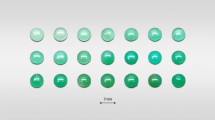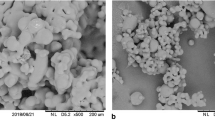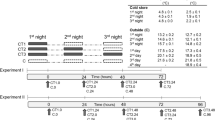Abstract
THE colour reaction given by anthrone reagent was used for the determination of carbohydrates by a spectrophotometric method. The method used is based on those of Fales1 and Schlegel2 but was considerably modified. For example, Schlegel used a wave-length of 570 mµ in order to correct for the presence of pigments in the plant material. But in the technique described here, a blank containing only the plant material (for each determination) and sulphuric acid were used. It was therefore possible to measure the carbohydrate content of the plant material (in this case Chlorella cells) at different stages of growth and when the cells contained different amounts of chlorophyll. Nevertheless, a small but constant error, due to the colour of the anthrone reagent itself, is always present.
This is a preview of subscription content, access via your institution
Access options
Subscribe to this journal
Receive 51 print issues and online access
$199.00 per year
only $3.90 per issue
Buy this article
- Purchase on Springer Link
- Instant access to full article PDF
Prices may be subject to local taxes which are calculated during checkout
Similar content being viewed by others
References
Fales, F. W., J. Biol. Chem., 193, 113 (1951).
Schlegel, H. G., Planta, 47, 510 (1956).
Author information
Authors and Affiliations
Rights and permissions
About this article
Cite this article
HEWITT, B. Spectrophotometric Determination of Total Carbohydrate. Nature 182, 246–247 (1958). https://doi.org/10.1038/182246b0
Issue Date:
DOI: https://doi.org/10.1038/182246b0
Comments
By submitting a comment you agree to abide by our Terms and Community Guidelines. If you find something abusive or that does not comply with our terms or guidelines please flag it as inappropriate.



